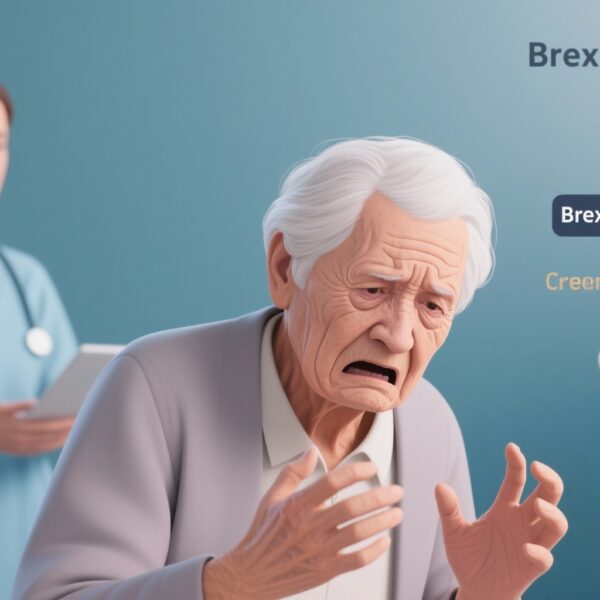Highlight
- Intensive counseling combined with varenicline or family-based interventions significantly improves smoking cessation rates compared to brief advice or usual care.
- Brief advice and brief counseling led by nurses outperform usual care, underlining the importance of routine nurse involvement in tobacco cessation efforts.
- The certainty of evidence for the most effective nurse-led interventions ranges from low to moderate, highlighting the need for more high-quality randomized trials.
- Nurse-led smoking cessation strategies are essential and scalable approaches to enhance tobacco abstinence within and beyond six months.
Study Background
Tobacco use remains a persistent global health challenge, substantially reducing quality of life and life expectancy across all patient populations. Smoking cessation is paramount in reducing tobacco-related morbidity and mortality. Nurses, who represent the largest workforce of healthcare professionals worldwide, are uniquely positioned to deliver smoking cessation interventions due to their frequent patient contact and trusted role in health promotion.
Despite the known effectiveness of nurse-led interventions, there is variability in the types and intensities of these approaches, and a lack of consensus on the optimal strategy to support smoking patients. This study addresses this gap by systematically evaluating and comparing multiple nurse-led smoking cessation interventions using a robust network meta-analysis framework.
Study Design
This systematic review and network meta-analysis included randomized controlled trials (RCTs) that enrolled smoking patients receiving nurse-led smoking cessation interventions. Comprehensive literature searches were performed in PubMed, Web of Science, CINAHL, Embase, PsycINFO, Scopus, and the Cochrane Central Register of Controlled Trials from inception to May 10, 2025.
Eligible studies were those reporting on the effectiveness of nurse-led interventions, with the primary outcome defined as the prevalence of tobacco abstinence at the last follow-up, measured either by self-report or biochemically validated methods. Secondary outcomes examined abstinence rates within six months and beyond six months.
Intervention strategies identified included brief advice, brief counseling, intensive counseling alone, and intensive counseling combined with pharmacological treatments such as varenicline or nicotine replacement therapy (NRT), as well as family-based interventions. The revised Cochrane risk-of-bias tool assessed study quality, and CINeMA software analyzed evidence credibility. Risk ratios (RR) with 95% confidence intervals were calculated using random-effects network meta-analysis models.
Key Findings
From an initial 3512 identified records, 26 RCTs involving 14,367 smoking patients met inclusion criteria. Eight nurse-led intervention combinations were compared.
The network meta-analysis demonstrated the following relative effectiveness compared to brief advice:
- Intensive counseling + varenicline: RR 2.78 (95% CI 1.95–3.95), moderate certainty.
- Intensive counseling + family-based intervention: RR 2.68 (95% CI 1.63–4.39), moderate certainty.
- Intensive counseling + nicotine replacement therapy: RR 1.38 (95% CI 1.08–1.77), low certainty.
- Intensive counseling alone: RR 1.17 (95% CI 1.01–1.36), very low certainty.
Additionally, brief advice (RR 1.51, 95% CI 1.12–2.02) and brief counseling (RR 1.54, 95% CI 1.13–2.09) were superior to usual care, though supported by low certainty evidence.
The surface under the cumulative ranking curve (SUCRA) identified intensive counseling combined with varenicline and intensive counseling with family-based intervention as the top-ranked interventions for increasing tobacco abstinence prevalence within and beyond six months, with probabilities of 99.6% and 99.7%, respectively.
This indicates that integrating pharmacological support or leveraging family involvement alongside intensive counseling substantially boosts smoking cessation success.
Expert Commentary
The findings reinforce the critical role of nurses in smoking cessation, highlighting that even brief interactions involving advice or counseling can surpass usual care and contribute positively to tobacco abstinence.
While the added value of intensive counseling combined with varenicline or family support is notable, the moderate to low certainty of evidence suggests cautious interpretation. Variability in study design, intervention fidelity, and measurement methods contribute to this uncertainty.
Clinical guidelines increasingly advocate for personalized interventions that combine behavioral and pharmacological strategies to optimize smoking cessation outcomes. Nurses, given their extended and trusted patient relationships, are ideally positioned to deliver such multifaceted interventions effectively.
Future high-quality RCTs with standardized outcome assessments and longer follow-up are needed to strengthen evidence, especially concerning family-based support mechanisms and combinations with nicotine replacement therapies.
Conclusion
Nurse-led smoking cessation interventions demonstrate clear benefits for patients who smoke, with simple brief advice or counseling already improving quitting rates compared to usual care.
More intensive nurse-led counseling combined with varenicline or family-based interventions offers the greatest efficacy in supporting tobacco abstinence, sustaining success both in the short and long term.
Healthcare systems and clinical practice should prioritize training and resources to enable nurses to deliver these effective, evidence-based interventions. Enhanced support for robust research is also warranted to further refine optimal strategies and increase the certainty of evidence guiding clinical decisions.
Funding and Registration
The study protocol was registered at PROSPERO under registration number CRD42023479985. Funding sources were not detailed in the original publication.
References
Zhang G, Zhou J, Xu Y, Ding H, Luk TT, He AW, Wang MP, Chan SSC, Cheung YTD. Effectiveness of nurse-led smoking cessation interventions in smoking patients: A systematic review and network meta-analysis of randomized controlled trials. Int J Nurs Stud. 2025 Nov;171:105201. doi: 10.1016/j.ijnurstu.2025.105201. Epub 2025 Aug 27. PMID: 40907094.


